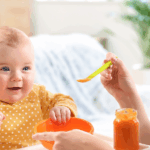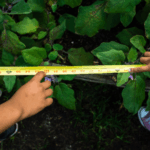
SEND in early years
Every child deserves the best possible start in life, with the right support to help them achieve their potential. The early years are a critical time, as experiences from birth to five strongly influence future life chances.
High Quality Inclusive Practice
SEND refers to children who need extra support with learning and development, or who have a disability that affects their daily lives. High-quality, inclusive practice supports children in early years and is responsive to each child, by adapting provision to meet individual needs and by using a range of teaching approaches.
Identifying special educational needs or disabilities
Early identification ensures children can access the right support as soon as possible, enabling them to participate fully in nursery activities.
Observing and identifying concerns
Sometimes observations and parents’ comments may highlight concerns about a child’s progress. When this happens, practitioners should take a holistic view, drawing on all available information to build an accurate picture of the child’s development.
Evidence that may indicate SEND can include: Observations of the child within the setting
- Information shared by parents when the child starts and during regular ongoing communication
- The health and development review carried out by the health visitor at aged two
- The two-year progress check completed within the setting
- The child’s own views, either verbal or non-verbal, shown through visual cues, choices and interests
- Progress in key areas such as communication, physical development, and social-emotional wellbeing
- Views of your Special Educational Needs Coordinator (SENCo) and any other practitioner or professional who has observed the child.
By bringing this information together and working in partnership with parents and, where appropriate, other professionals, practitioners can decide whether a child may benefit from additional support and ensure that timely and appropriate interventions are put in place.
Supporting Children with SEND
Nurseries play a vital role in supporting children with Special Educational Needs and Disabilities (SEND). This can be achieved by:
- Providing targeted interventions through SEN Support
- Adapting activities and the learning environment to meet each child’s individual developmental needs
- Working in partnership with parents, the setting’s Special Educational Needs Coordinator (SENCo), and external specialist services where appropriate.
All support provided should be documented using the assess, plan, do, review framework. If, through this process, it is identified that a child requires further support, you can follow the guidance and procedures set out by your local authority to access specialist services.
Supporting parents of children with SEND
Building strong, open relationships with parents is key to ensuring every child’s strengths and needs are fully understood and celebrated. By working in partnership, you can share valuable insights and ensure that children receive consistent support both at home and in the nursery. This approach also helps families access the right guidance, resources, and strategies tailored to their child, creating a supportive partnership.
Looking for more support for SEND in early years?
See our Championing SEND programme for nurseries, our Role of the SENCo live virtual training or our SEND awareness online course.
- SEND
Similar Articles
Top tips: Using mathematical language everyday with young children

Early years activity: Non-standard measures


